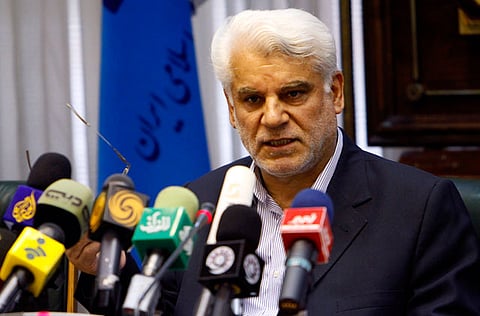European sanctions on Iran will have little impact on the region
Half of Iranian oil exports went to the European Union before sanctions were imposed

Dubai: The European Union Sanctions on Iran, which entered into full force on Sunday, will have a considerable impact on the Iranian economy and will cause some problems among the members of Opec, but would have a limited effect on the oil-rich region, economists said.
“The main impact will be on Iran from different aspects,” UAE-based economic expert Mohammad Al Assoumi told Gulf News.
“There will be a decline in Iran’s oil revenues estimated at $2.5 billion [Dh9.18 billion] a month, and there will be a decline in Iran’s quota in Opec (Organisation of Petroleum Exporting Countries).
“But on the regional level, I don’t believe there will be an impact on the countries of the region in any way.”
With a production capacity of nearly 3.3 million barrels a day, Iran is the second-biggest producer in Opec.
Before sanctions European markets imported half of Iran’s oil exports.
However, the European bloc agreed on January 23 to sanction Iran’s oil exports and freeze the assets of its central bank, as part of western efforts to pressure Tehran into make concessions in its controversial nuclear programme.
The European sanctions included an immediate ban on new contracts for Iranian crude oil and petroleum products. Existing contracts were allowed to run until the beginning of July.
The European sanctions came after a set of American sanctions were passed late last year. American sanctions on Iran were first introduced after the Islamic Revolution in 1979.
A US law enacted on December 31 cut off international banks from the US financial system if they traded oil with Iran.
Washington gave importing nations, including China, India and Japan, until June 28 to demonstrate they had “significantly reduced” their purchases of Iranian oil in order to qualify for exemptions.
Shortly after the western sanctions were announced a few months earlier, some Asian countries, including Japan and South Korea, also decreased their imports of Iranian oil.
Apart from depriving Iran from a big chunk of its oil revenues, which constitute nearly half of government revenues, the Iranian oil sector will suffer from the new sanctions, economists say.
European sanctions “will hinder the developments of Iran’s oil industry, because they are banning companies from dealing with Iran, and this will affect Tehran’s production in the future”, Walid Khadouri, a veteran oil expert based in Beirut, told Gulf News.
Also, “problems inside Opec started to surface, with Iranian and Venezuelan calls for a specific range of price of $80 to $120 per barrel”, Khadouri added.
Iran has called on Opec to convene an emergency meeting to address the group’s production in excess of its target of 30 million barrels a day, Iranian media quoted Oil Minister Rostam Qasimi as saying.
Some expect the European sanctions to push oil prices up after they fell below $90 barrel on June 21 for the first time in 18 months amid concerns that Europe’s debt crisis would weaken fuel use globally.
However, Khadouri believes it is too early to predicate oil price levels in light of the European sanctions.
“If the Europeans managed to solve the euro problem, the demand on oil will increase and the prices will go up,” he said.
“But if they couldn’t, the prices will go down because the market will envision a decline in the demand.”
Al Assoumi added the slow economic growth worldwide is another factor that could lead to a decrease in oil demand.
“The world is also came out from winter and that is another factor for the demand to drop,” he said.
Sign up for the Daily Briefing
Get the latest news and updates straight to your inbox



